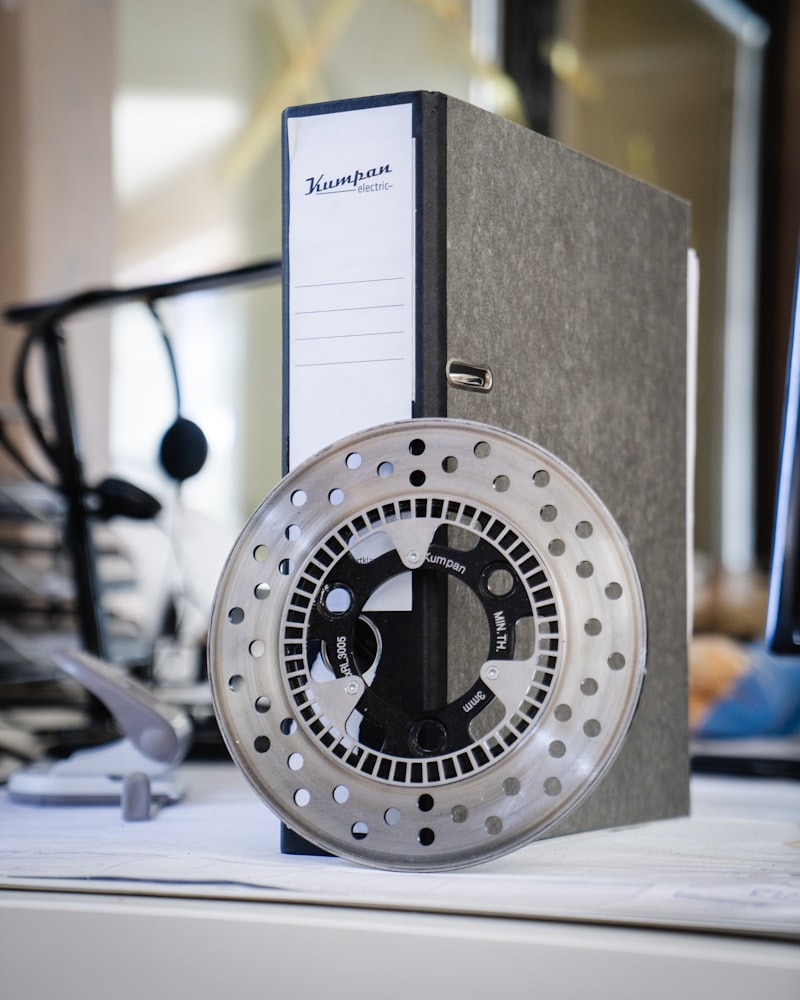Are you worried about the brake light on your Nissan Altima’s dashboard? Don’t fret, because in this article, we’ll delve into the details of why that ominous brake light might be illuminated and what it could mean for your vehicle’s safety.
When you see the brake light on your Nissan Altima’s dashboard glowing like a beacon, it’s a clear indication that something needs your attention. This little warning light is designed to notify you of potential issues with your braking system, ensuring you take appropriate action.
One possible reason for the brake light coming on is a simple matter of low brake fluid. Your vehicle’s braking system relies on an adequate supply of hydraulic fluid to function properly. If the fluid level drops too low, it can trigger the brake light indicator. Checking the brake fluid reservoir under the hood and topping it off if necessary might just solve the problem.
Another cause could be worn brake pads. Over time, the friction material on your brake pads wears down, reducing their effectiveness. When the pads become excessively worn, a sensor embedded in them activates the brake light, signaling the need for replacement. Neglecting worn brake pads could compromise your ability to stop safely, so it’s crucial to address this issue promptly.
In some cases, the brake light may indicate a more serious problem, such as a malfunctioning ABS (anti-lock braking system). The ABS helps prevent the wheels from locking up during sudden braking, enhancing control. If your ABS is faulty, the brake light may illuminate to alert you to the issue. Professional diagnosis and repair should be sought to ensure optimum safety.

Remember, the brake light on your Nissan Altima’s dashboard is not to be ignored. It serves as a valuable communication tool between your vehicle and you, highlighting potential problems within the braking system. By addressing the underlying cause promptly, you can help maintain your car’s safety and keep your mind at ease while driving.
So, next time you spot that brake light shining brightly, take a moment to assess the situation. Whether it’s low brake fluid, worn brake pads, or a more intricate issue with the ABS, addressing the problem swiftly will keep you on the road to smooth and secure travels.
Nissan Altima Owners Alert: Understanding the Brake Light on Dashboard and Its Implications
Attention, Nissan Altima owners! Are you puzzled by the brake light on your dashboard? Don’t fret, because we’re here to shed some light on this topic and help you understand its implications. The brake light is a crucial indicator that demands your attention whenever it illuminates.

So, what does this warning light mean? When you see the brake light on your dashboard, it’s trying to tell you something important about your vehicle’s braking system. It typically indicates an issue with the braking system, such as low brake fluid, worn brake pads, a malfunctioning brake sensor, or even a problem with the ABS (Anti-lock Braking System).
Imagine your car as a well-coordinated dance, where each component plays a vital role. The brake system is like the lead dancer, responsible for ensuring your safety on the road. When the brake light comes on, it’s like a choreographer signaling a misstep in the routine – it’s time to pay attention and take action.
Ignoring the brake light can have serious consequences. If your brake fluid is low, it could compromise your ability to stop efficiently, increasing the risk of accidents. Worn brake pads may reduce braking performance and increase stopping distances, posing a danger to you and others on the road. In the case of an ABS malfunction, your vehicle’s stability and control during emergency braking might be compromised.
To prevent further complications, it’s crucial to address the issue promptly. Start by checking your brake fluid level. If it’s low, top it up with the manufacturer-recommended type of fluid. However, if the fluid level is normal, it’s advisable to have a professional inspect your braking system to identify and resolve any underlying problems.
Remember, maintaining your vehicle’s brakes is like taking care of your own health. Regular check-ups and immediate attention to warning signs are essential. Your safety and that of your passengers depend on it.
When the brake light on your Nissan Altima’s dashboard illuminates, it’s a signal that should never be ignored. Understanding its implications and taking prompt action can help ensure your safety on the road. So, pay attention to this important warning and take the necessary steps to address any issues with your vehicle’s braking system. Stay safe out there, Altima owners!
Decoding the Mystery: What Does a Brake Light on the Nissan Altima Dashboard Actually Mean?
Have you ever experienced that heart-stopping moment when you glance at your Nissan Altima’s dashboard and spot the dreaded brake light? It’s natural to feel a rush of concern and wonder what it signifies. Fear not, as we unravel the mystery behind this enigmatic indicator and shed light on its meaning.
When that brake light illuminates on your Nissan Altima dashboard, it serves as an essential warning sign for potential braking system issues. This small yet mighty red light is designed to catch your attention and notify you that there might be something amiss with your brakes. It could indicate various problems related to your vehicle’s braking system that require immediate attention.
One possible reason for the brake light to come on is low brake fluid. The braking system relies on hydraulic pressure to function effectively, and low brake fluid levels can compromise its performance. So, if you notice the brake light glowing, it’s crucial to check your brake fluid reservoir and ensure it’s at the optimal level.
Another cause for the brake light to illuminate could be worn-out brake pads. Over time, brake pads wear down due to regular use, and they need to be replaced periodically. When the brake pads become excessively thin, the brake light may activate to alert you about the need for replacement. Ignoring this warning could lead to reduced braking efficiency and potentially hazardous situations.
Additionally, a malfunctioning brake system sensor or an issue with the anti-lock braking system (ABS) could trigger the brake light. These situations require professional inspection and diagnostics to identify the exact problem and take appropriate measures to rectify it.
Remember, the brake light on your Nissan Altima’s dashboard is not something to be ignored or taken lightly. Its purpose is to safeguard you and others on the road by signaling potential problems with your vehicle’s braking system. Prompt action is vital to ensure your safety and the optimal performance of your brakes.
Common Causes Unveiled: Why Your Nissan Altima’s Brake Light Keeps Illuminating

Are you frustrated with the constant illumination of your Nissan Altima’s brake light? It can be quite perplexing when such a crucial safety feature seems to have a mind of its own. In this article, we will delve into the common causes behind this issue and help shed some light on why your Nissan Altima’s brake light keeps illuminating.
One possible culprit for this persistent problem could be a faulty brake switch. The brake switch is responsible for detecting when you press the brake pedal and relaying that information to the brake lights, causing them to illuminate. If the switch malfunctions or gets stuck, it can result in the continuous illumination of the brake light even when you are not applying the brakes. Replacing the brake switch might be the key to resolving this particular issue.
Another potential cause for the illuminated brake light is an imbalance in the brake fluid levels. Insufficient brake fluid or air bubbles in the system can interfere with the proper functioning of the brake components, including the brake light sensor. Regularly checking and maintaining the optimal brake fluid level can help prevent this problem from occurring.
Additionally, worn-out brake pads or damaged brake rotors can trigger the brake light to stay on. When your brake pads become excessively worn, they may not fully disengage from the rotors, causing friction and heat buildup. This can lead to the brake light staying illuminated due to the increased temperature detected by the brake light sensor. Replacing the brake pads and inspecting the condition of the rotors can address this issue effectively.
Furthermore, electrical issues within the braking system can also contribute to the persistent illumination of the brake light. A short circuit or wiring problem can disrupt the proper functioning of the brake light sensor, resulting in its continuous activation. Diagnosing and resolving any electrical faults may require the expertise of a qualified mechanic.
Several common causes can be attributed to the continuous illumination of your Nissan Altima’s brake light. A faulty brake switch, imbalanced brake fluid levels, worn-out brake pads, damaged rotors, or electrical issues could all be potential factors behind this problem. By identifying the root cause and taking appropriate measures, you can ensure that your Altima’s brake light functions as intended, promoting both your safety and peace of mind on the road.
Safety First: How to Respond When Your Nissan Altima’s Brake Light Shines Bright
Introduction:
Hey there! If you’re a proud owner of a Nissan Altima, your safety on the road is undoubtedly a top priority. Today, we’ll be discussing a crucial issue that can catch any driver’s attention: when your Nissan Altima’s brake light shines bright. It’s essential to understand how to respond promptly and effectively to ensure your safety and prevent potential damage to your vehicle.
Why Does the Brake Light Shine Bright?
Have you ever wondered why your Nissan Altima’s brake light suddenly decides to glow intensely? Well, this occurrence usually indicates a problem with the braking system. The brake light serves as an early warning system, alerting you to potential issues that require your immediate attention.
Immediate Actions to Take:
When faced with a glaring brake light, it’s vital not to panic but to act swiftly. Here are some steps you should follow:
-
Evaluate the Situation:
First things first, remain calm and assess the situation. Are you experiencing any changes in your brake pedal’s responsiveness or hearing unusual noises while braking? Understanding the accompanying symptoms will help you gauge the severity of the issue. -
Check the Brake Fluid Level:
One common cause of a bright brake light is low brake fluid. Locate the brake fluid reservoir under the hood, typically labeled, and check if the level is below the recommended mark. If so, replenish it with the manufacturer-recommended brake fluid immediately. -
Inspect Brake Pads and Rotors:
Worn-out brake pads or damaged rotors can trigger the brake light. Visually inspect these components for signs of excessive wear, such as thin brake pads or grooves on the rotors. If you notice any issues, consult a professional mechanic for further evaluation and potential replacement. -
Address Electrical and Wiring Problems:
In certain cases, faulty electrical connections or wiring can cause the brake light to shine brightly. Check the wiring near the brake pedal and ensure all connections are secure and free from damage. If you identify any loose or damaged wires, it’s best to seek professional assistance.
Conclusion:
Remember, responding promptly to a bright brake light is crucial for your safety on the road. By evaluating the situation, checking the brake fluid level, inspecting brake pads and rotors, and addressing electrical issues, you’re taking proactive steps towards maintaining a reliable and secure driving experience in your Nissan Altima. Drive safe, and always prioritize safety above all else!